Nil Yalter: 'Exile is a hard job'
-
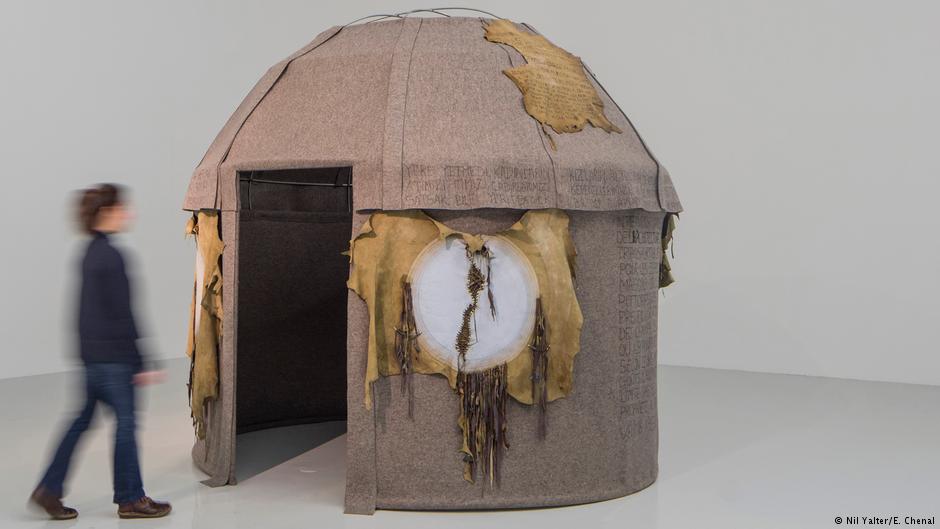
Invisible in prison: in the early 1970s, Nil Yalter lived with nomads in Anatolia. She learned about the fate of women there. Their lives as young girls involve erecting and decorating the tent. They decide when the man can go inside. But the price is high. They are not allowed to leave the yurt. With their men and their animals they move across the steppe, invisible to outside eyes -
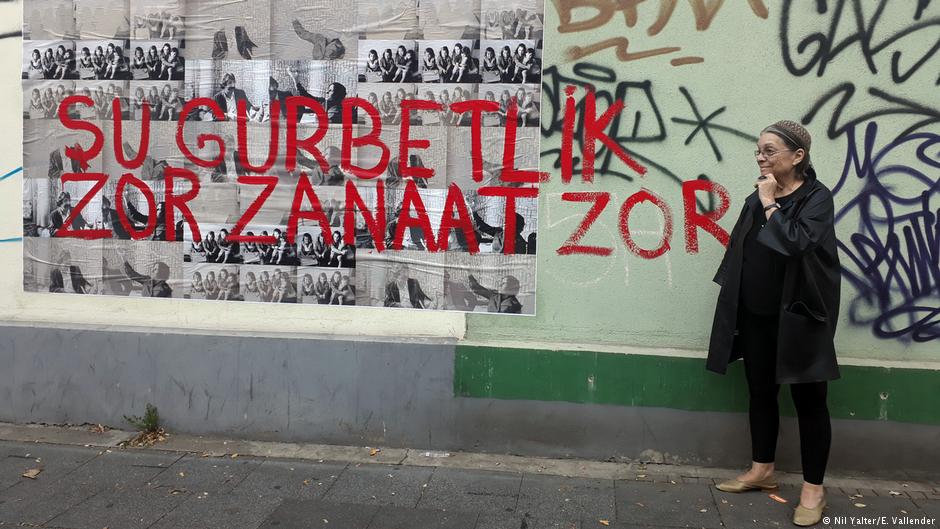
Being in public: Nil Yalter's poster campaign aims to sensitise the public to the situation of people in exile. She hangs her large red-lettered posters around the world. In Vienna, she was attacked for it, in Mumbai, however, the posters were left hanging unscathed for weeks. In Cologne, too, she hangs up her posters. It says in Turkish: exile is hard work -
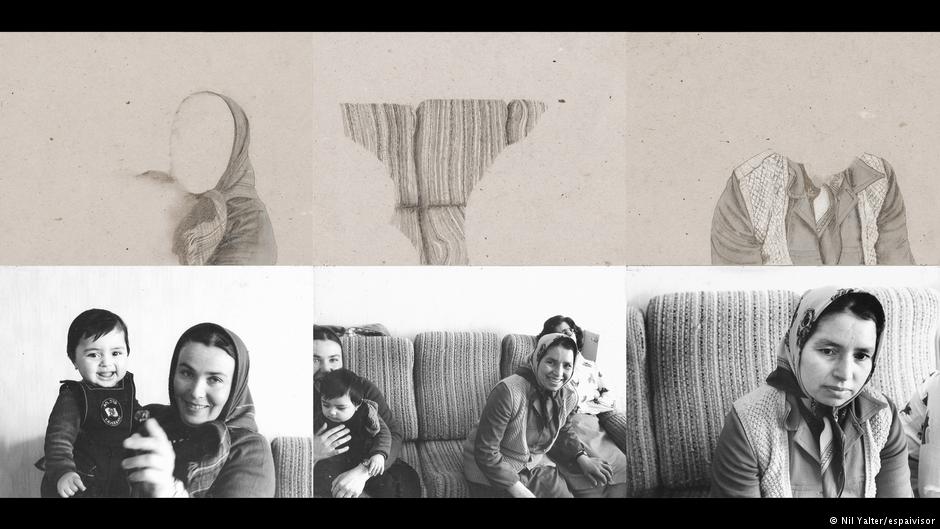
Turkish immigrant women: in 1977, photos were taken of Turkish women living in exile. They are representative of many other women in the same isolated situation: they've lost country and language. Nil Yalter draws her silhouettes, but without the face. Thus, the individual is made unrecognisable – to emphasise the universal fate of migrants -
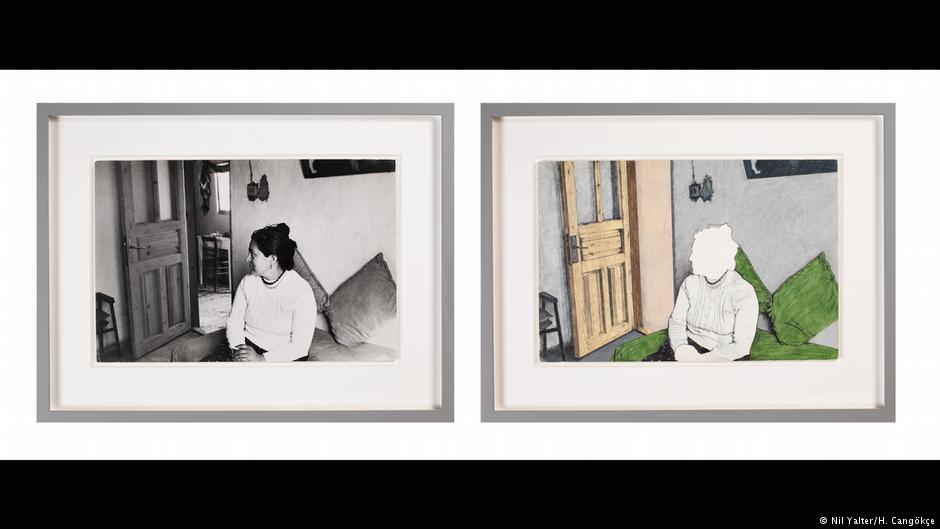
Kurdish women from Turkey: "Rahime" is a multimedia installation that uses video, photographs and drawings to highlight the lives of Kurdish women in Turkey. Again she erases the individual in her drawings. In the video interviews, the women tell how difficult it is for them to lead an independent life, without the possibility to learn the language -
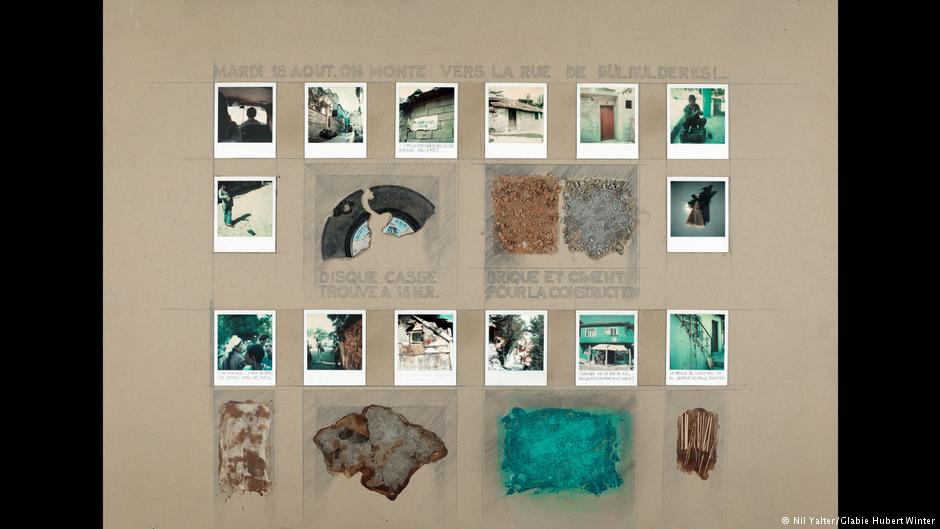
Temporary accommodation: Nil Yalter has often walked through neighbourhoods where guest workers first settled in the 1970s. In photos and with the help of found objects she captures the lives of these people. The Polaroids show the often rundown dwellings, in the slums or suburbs of the big cities
https://qantara.de./en/node/24889
Link
To all image galleries
